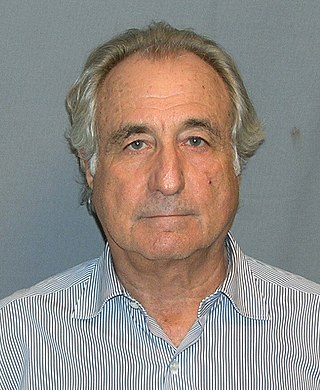A data broker is an individual or company that specializes in collecting personal data or data about companies, mostly from public records but sometimes sourced privately, and selling or licensing such information to third parties for a variety of uses. Sources, usually Internet-based since the 1990s, may include census and electoral roll records, social networking sites, court reports and purchase histories. The information from data brokers may be used in background checks used by employers and housing.
LiveRamp Holdings, Inc., is a San Francisco, California-based SaaS company that offers a data connectivity platform whose services include data onboarding, the transfer of offline data online for marketing purposes.

Jeremy Hammond is an American anarchist activist and former computer hacker from Chicago. He founded the computer security training website HackThisSite in 2003. He was first imprisoned over the Protest Warrior hack in 2005 and was later convicted of computer fraud in 2013 for hacking the private intelligence firm Stratfor and releasing data to WikiLeaks, and sentenced to 10 years in prison.
Gregory Reyes is an American businessman who most recently served as the chief executive officer (CEO) for Brocade Communications. He is the first person to have been convicted for fraudulent backdating of corporate stock options.
Universal Express claimed to be a transportation and logistics service company and was registered in Nevada and headquartered in Boca Raton, Florida. However, investigation by the SEC clearly revealed that the primary business of USXP was the production of and distribution of billions of illegal, unregistered shares. The money from these sales went directly to support the lavish lifestyle of Richard Altomare and his supporters. Some funds were diverted to advertising designed to push the sale of additional shares.

The Madoff investment scandal was a major case of stock and securities fraud discovered in late 2008. In December of that year, Bernie Madoff, the former Nasdaq chairman and founder of the Wall Street firm Bernard L. Madoff Investment Securities LLC, admitted that the wealth management arm of his business was an elaborate multi-billion-dollar Ponzi scheme.

Albert Gonzalez is an American computer hacker, computer criminal and police informer, who is accused of masterminding the combined credit card theft and subsequent reselling of more than 170 million card and ATM numbers from 2005 to 2007, the biggest such fraud in history. Gonzalez and his accomplices used SQL injection to deploy backdoors on several corporate systems in order to launch packet sniffing attacks which allowed him to steal computer data from internal corporate networks.

LulzSec was a black hat computer hacking group that claimed responsibility for several high profile attacks, including the compromise of user accounts from PlayStation Network in 2011. The group also claimed responsibility for taking the CIA website offline. Some security professionals have commented that LulzSec has drawn attention to insecure systems and the dangers of password reuse. It has gained attention due to its high profile targets and the sarcastic messages it has posted in the aftermath of its attacks. One of the founders of LulzSec was computer security specialist Hector Monsegur, who used the online moniker Sabu. He later helped law enforcement track down other members of the organization as part of a plea deal. At least four associates of LulzSec were arrested in March 2012 as part of this investigation. Prior, British authorities had announced the arrests of two teenagers they alleged were LulzSec members, going by the pseudonyms T-flow and Topiary.

Operation Anti-Security, also referred to as Operation AntiSec or #AntiSec, is a series of hacking attacks performed by members of the hacking group LulzSec and Anonymous, and others inspired by the announcement of the operation. LulzSec performed the earliest attacks of the operation, with the first against the Serious Organised Crime Agency on 20 June 2011. Soon after, the group released information taken from the servers of the Arizona Department of Public Safety; Anonymous would later release information from the same agency two more times. An offshoot of the group calling themselves LulzSecBrazil launched attacks on numerous websites belonging to the Government of Brazil and the energy company Petrobras. LulzSec claimed to retire as a group, but on 18 July they reconvened to hack into the websites of British newspapers The Sun and The Times, posting a fake news story of the death of the publication's owner Rupert Murdoch.
The Raj Rajaratnam/Galleon Group, Anil Kumar, and Rajat Gupta insider trading cases are parallel and related civil and criminal actions by the U.S. Securities and Exchange Commission and the United States Department of Justice against three friends and business partners: Galleon Group hedge fund founder-owner Raj Rajaratnam and former McKinsey & Company senior executives Anil Kumar and Rajat Gupta. In these proceedings, the men were confronted with insider trading charges: Rajaratnam was convicted, Kumar pleaded guilty and testified as key witness in the criminal trials of Rajaratnam and Gupta, and Gupta was convicted in United States District Court for the Southern District of New York in Manhattan in June 2012.
The 2012 LinkedIn hack refers to the computer hacking of LinkedIn on June 5, 2012. Passwords for nearly 6.5 million user accounts were stolen. Yevgeniy Nikulin was convicted of the crime and sentenced to 88 months in prison.

In United States of America v. Aaron Swartz, Aaron Swartz, an American computer programmer, writer, political organizer and Internet activist, was prosecuted for multiple violations of the Computer Fraud and Abuse Act of 1986 (CFAA), after downloading academic journal articles through the MIT computer network from a source (JSTOR) for which he had an account as a Harvard research fellow. Facing trial and the possibility of imprisonment, Swartz committed suicide, and the case was consequently dismissed.
Ripple is a real-time gross settlement system, currency exchange and remittance network that is open to financial institutions worldwide and was created by Ripple Labs Inc., a US-based technology company. Released in 2012, Ripple is built upon a distributed open source protocol, and supports tokens representing fiat currency, cryptocurrency, commodities, or other units of value such as frequent flier miles or mobile minutes. Ripple purports to enable "secure, instantly and nearly free global financial transactions of any size with no chargebacks". The ledger employs the native cryptocurrency known as XRP.
The Mantria Corporation Ponzi scheme has been described as the "biggest green energy scam" in United States history. A Federal judge in the Securities and Exchange Commission's civil case found Mantria had scammed more than $54.5 million “by egregiously, recklessly, knowingly, and shamelessly perpetrating a fraudulent scheme” that used “misrepresentations, omissions, and blatant lies to induce unsuspecting and unwitting victim investors to liquidate the equity in their homes and take out bank loans to invest in Defendants’ scheme, which was nothing more than smoke and mirrors.” On November 16, 2009, the U.S. Securities and Exchange Commission charged four people who targeted those nearing retirement age who were seeking real estate and "green" investments. Many of these securities were offered by Mantria Corporation.
Cryptocurrency and crime describe notable examples of cybercrime related to theft of cryptocurrencies and some methods or security vulnerabilities commonly exploited. Cryptojacking is a form of cybercrime specific to cryptocurrencies that have been used on websites to hijack a victim's resources and use them for hashing and mining cryptocurrency.
Woodbridge Securities was a $1.2 billion Ponzi scheme run by CEO Robert H. Shapiro. The fraud scammed approximately 8,400 victims of retail investors, many of them elderly.

David Peter Bloom is a twice convicted American fraudster who defrauded investors of almost $15 million in the 1980s.






